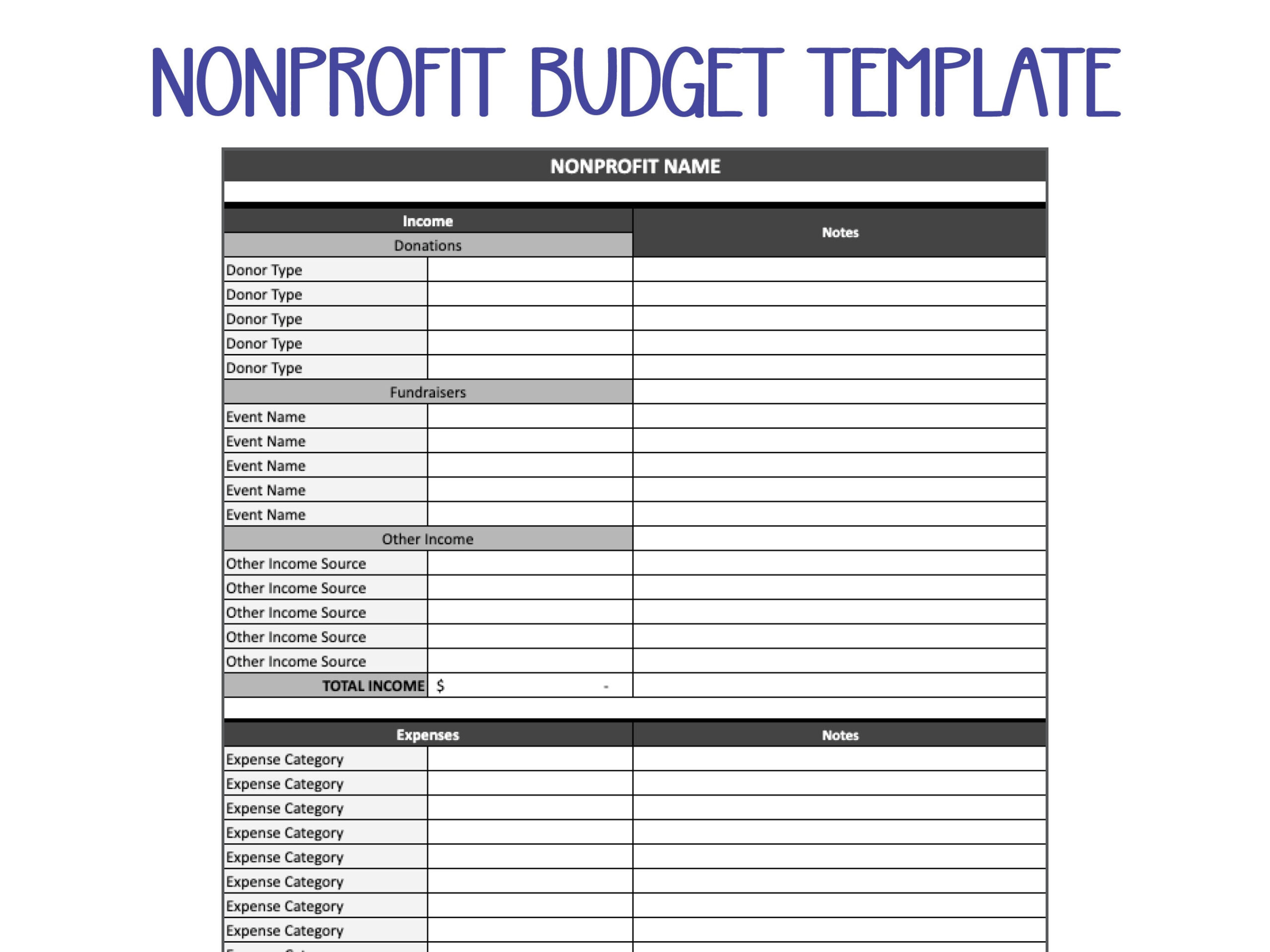Budgeting is a crucial aspect of running a non-profit organization effectively. Without a well-thought-out budget plan, it can be challenging to manage resources efficiently and achieve the organization’s mission. However, creating a budget template for a non-profit organization can be a daunting task, especially for those who are not familiar with financial management. In this article, we will discuss the importance of having a budget template for a non-profit organization, the purpose it serves, why it is essential, how to create one, and provide some tips for successful budgeting.
What is a Budget Template for Non-Profit Organizations?
A budget template for a non-profit organization is a financial document that outlines the projected income and expenses for a specific period, usually a fiscal year. It serves as a roadmap for the organization’s financial activities and helps in making informed decisions about resource allocation. The budget template typically includes categories such as revenue sources, fundraising activities, program expenses, administrative costs, and other operational expenses. By having a budget template in place, non-profit organizations can track their financial performance, identify areas for improvement, and ensure that they are working within their financial means.
The Purpose of a Budget Template for Non-Profit Organizations

Image Source: etsystatic.com
The primary purpose of a budget template for a non-profit organization is to provide a clear and detailed overview of the organization’s financial situation. It helps in setting financial goals, planning for the future, and monitoring the organization’s progress towards achieving its mission. By creating a budget template, non-profit organizations can prioritize their spending, identify potential areas of growth, and make strategic decisions about resource allocation. Additionally, a budget template can be used as a tool for communication with stakeholders, such as donors, board members, and staff, to ensure transparency and accountability in financial management.
Why is a Budget Template Essential for Non-Profit Organizations?
Having a budget template is essential for non-profit organizations for several reasons. Firstly, it provides a structured framework for financial planning and decision-making, ensuring that resources are allocated efficiently and effectively. A budget template helps in identifying potential financial risks and opportunities, allowing organizations to proactively address challenges and capitalize on growth opportunities. Additionally, a budget template enables non-profit organizations to demonstrate financial responsibility to donors, funders, and regulatory bodies, enhancing credibility and trust. Overall, a budget template is a critical tool for achieving financial sustainability and fulfilling the organization’s mission.
How to Create a Budget Template for Non-Profit Organizations

Image Source: donorbox.org
Creating a budget template for a non-profit organization involves several steps and considerations. Here are some key steps to follow:
1. Identify Revenue Sources:

Image Source: pinimg.com
Start by listing all sources of income, such as donations, grants, fundraising events, and program fees. Estimate the amount of revenue expected from each source for the upcoming fiscal year.
2. Outline Expenses:

Image Source: smartsheet.com
Next, categorize expenses into different categories, such as program expenses, administrative costs, fundraising expenses, and other operational expenses. Estimate the amount of expenses for each category based on historical data and future projections.
3. Set Financial Goals:

Image Source: smartsheet.com
Establish financial goals for the organization, such as increasing revenue, reducing costs, or improving financial sustainability. Align the budget template with these goals to ensure that financial resources are allocated accordingly.
4. Monitor and Adjust:

Image Source: smartsheet.com
Regularly monitor the organization’s financial performance against the budget template and make adjustments as needed. Review the budget template periodically to reflect changes in income, expenses, or financial goals.
5. Seek Input and Feedback:

Image Source: smartsheet.com
Involve key stakeholders, such as board members, staff, and finance committee, in the budgeting process. Seek input and feedback to ensure that the budget template reflects the organization’s priorities and goals.
6. Use Budgeting Tools:

Image Source: gdoc.io
Utilize budgeting tools and software to streamline the budgeting process and facilitate financial analysis. There are various budgeting tools available specifically designed for non-profit organizations to help in creating, managing, and tracking budgets effectively.
7. Ensure Transparency and Accountability:

Image Source: ctfassets.net
Communicate the budget template to stakeholders and ensure transparency in financial management. Provide regular updates on the organization’s financial performance and be accountable for how financial resources are being utilized.
8. Evaluate and Improve:

Image Source: smartsheet.com
Conduct regular evaluations of the budget template to assess its effectiveness and identify areas for improvement. Use feedback from stakeholders and financial data to make informed decisions about budgeting and financial management.
Tips for Successful Budgeting in Non-Profit Organizations
Align Budget with Strategic Goals: Ensure that the budget template aligns with the organization’s mission, vision, and strategic objectives.
Involve Key Stakeholders: Engage board members, staff, and finance committee in the budgeting process to gain buy-in and support.
Monitor Financial Performance: Regularly track the organization’s financial performance against the budget template and make adjustments as needed.
Stay Flexible: Be prepared to adapt the budget template to changing circumstances, such as unexpected expenses or revenue fluctuations.
Seek Professional Advice: Consult with financial experts or accountants to ensure that the budget template is accurate and compliant with accounting standards.
Communicate Effectively: Clearly communicate the budget template to stakeholders, donors, and staff to ensure transparency and accountability in financial management.
In conclusion,
Creating a budget template for a non-profit organization is essential for effective financial management and organizational success. By following the steps outlined in this article and implementing the tips for successful budgeting, non-profit organizations can ensure that their financial resources are allocated efficiently, their mission is being fulfilled, and they are operating with transparency and accountability. Remember, a well-thought-out budget template is not just a financial document, but a strategic tool that guides the organization towards achieving its goals and making a positive impact in the community.